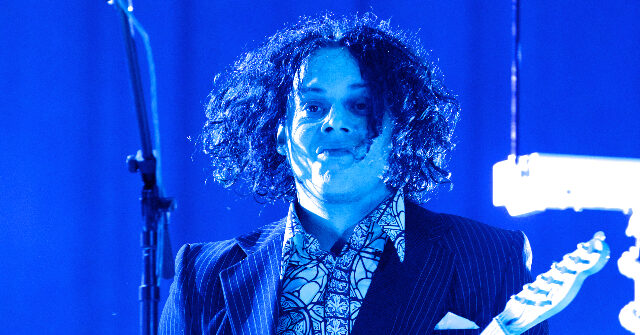The White Stripes, the renowned rock band, has decided to drop a lawsuit against President-elect Donald Trump concerning the unauthorized use of their iconic song “Seven Nation Army” in a campaign video. Initially filed in September after the song was featured in a video shared by Trump’s Deputy Director of Communications, Margo Martin, the lawsuit has been dismissed at the band’s request. According to a report from Billboard, the band filed a motion to dismiss “without prejudice,” indicating that they reserve the right to refile the case in the future if they choose to do so.
The legal dispute began when a video surfaced in August showing Trump boarding his private jet, with “Seven Nation Army” playing in the background. Lead vocalist Jack White expressed his outrage over the use of his music, delivering a passionate social media message in which he warned Trump and his team to refrain from appropriating his songs. In his message, White criticized Trump vehemently, calling him a “fascist” and expressing disbelief at his actions, particularly in relation to veterans. The intensity of White’s condemnation reflected not only his discontent with the unauthorized use of the song but also his broader disdain for Trump’s political conduct.
The lawsuit itself, filed in a New York court, articulated that band members Jack and Meg White strongly disapprove of Trump’s policies and actions during his presidency and those he proposed for a second term. The legal maneuvering by the band aligns with a series of similar complaints raised by various musicians against Trump throughout the presidential campaign. Many artists took issue with their music being used in settings that contradicted their personal beliefs and artistic intent, leading to a host of legal actions in the weeks leading up to the election.
As Trump prepares to take office in January, the implications of the White Stripes’ decision to dismiss their lawsuit remain uncertain for the music industry and for artists navigating their rights concerning unauthorized use of their work. The band’s choice to leave the door open for a potential re-filing hints at the possibility of ongoing tensions between the music community and the political landscape. This scenario underscores a recurring theme in modern politics, where the intersection of art and political expression becomes increasingly complex.
The broader context surrounding the lawsuit and its dismissal suggests a growing trend among musicians to assert their rights as creators in response to the political climate. As artists like the White Stripes take a stand against the appropriation of their music by political figures that contradict their values, it raises important questions about copyright, political expression, and the ethical use of music in campaign settings. This reflects a shift in awareness among artists about the impact of their work and the motivations behind its usage.
In summary, the White Stripes have removed their lawsuit against Donald Trump, a decision that potentially allows for future legal action if the band deems it necessary. Jack White’s outspoken criticism underscores the tension between art and politics, highlighting widespread discontent among musicians regarding the use of their music in political campaigns. As the intricacies of intellectual property rights and political expression continue to evolve, this situation signifies a moment in which artists are reclaiming their narratives and asserting their agency within the broader societal discourse.

